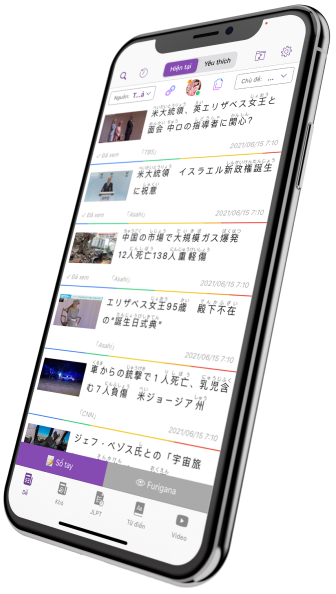67
年前、
都立病院で
別の
赤ちゃんと
取り違えられ、
生みの親を
知らずに
生きてきた
男性が「
出自を
知る権利があり、
都には
調査する
義務が
ある」
などと
訴えた
裁判で、
東京地方裁判所は
病院を
運営していた
都に対し、
戸籍などをもとに
生みの親について
調査するよう
命じました。
67 years ago, a man who was switched with another baby at a metropolitan hospital and lived without knowing his biological parents filed a lawsuit claiming the right to know his origins and the obligation of the metropolitan government to investigate. In this case, the Tokyo District Court ordered the metropolitan government, which operated the hospital, to investigate his biological parents based on family registers and other records.
の
弁護士によりますと、
取り違えた
病院側に
出自の
調査を
命じた
判決は
初めてだということです。
According to the plaintiffs lawyer, this is the first ruling that orders the hospital, which made the mistake, to investigate the origin.
都内に住む江蔵智さん(67)は1958年、都が運営していた「墨田産院」で生まれた直後、別の赤ちゃんと取り違えられ、血のつながらない両親に育てられました。
Ezo Satoshi, 67, who lives in Tokyo, was switched with another baby immediately after being born at the Sumida Maternity Hospital operated by the city in 1958, and was raised by parents with no blood relation.
両親の血液型を知ったのをきっかけに40代でDNA鑑定を行い、血縁関係がないことがわかり、都に対し「出自を知る権利があり、都には調査する義務がある」として訴えを起こしました。
In their 40s, prompted by learning their parents blood types, they conducted a DNA test and discovered there was no biological relationship. They filed a lawsuit against the city, asserting the right to know ones origins and the citys obligation to investigate.
都側は「調査する義務はない。
The city side has no obligation to investigate.
のプライバシーを
侵害する
おそれが
ある」
などとして
争っていました。
The argument was that it might infringe on the privacy of third parties.
21日の判決で、東京地方裁判所の平井直也裁判長は「調査の対象者は協力を拒否することもできるほか、真実を知りたいと考える可能性も少なくない」として、都の主張を退けました。
In the ruling on the 21st, Judge Naoya Hirai of the Tokyo District Court dismissed the Tokyo Metropolitan Governments claim, stating that subjects of the investigation can also refuse to cooperate, and there is also a significant possibility that they may want to know the truth.
そのうえで「日本では出自を知る権利は法制化されていないが、個人の尊重などを定めた憲法13条が保障する法的な利益だと言える。
In addition, In Japan, the right to know ones origins is not legislated, but it can be said to be a legal interest guaranteed by Article 13 of the Constitution, which stipulates respect for individuals.
の
重大さから、
病院は
取り違えがあった
場合、できる
限りの
対応を
取る
義務が
ある」としました。
The hospital is obligated to take all possible measures in case of a mix-up due to the seriousness of the matter.
そして、戸籍をもとに可能性のある人を特定することや、DNA鑑定の協力を依頼して実施することなど、生みの親について調査するよう命じました。
Based on the family register, they were ordered to identify potential individuals and investigate the biological parents by requesting cooperation for DNA testing.
原告側の弁護士によりますと、取り違えた病院側に出自の調査を命じた判決は初めてだということです。
According to the plaintiffs lawyer, this is the first ruling that orders the hospital, which made the mistake, to investigate the origin.
江蔵智さん「1日も早く調査を」
判決のあと都内で開かれた会見で、原告の江蔵智さん(67)は「神に願うような気持ちで判決に臨みました。
Mr. Satoshi Ezo said, Investigate as soon as possible. At a press conference held in Tokyo after the verdict, the plaintiff, Mr. Satoshi Ezo 67, said, I faced the verdict with a feeling of praying to God.
には
請求を
認めていただき
感謝しています。
I am grateful to the court for acknowledging my claim.
ての
親と
親子関係がないと
分かったときから20
年たっている。
It has been 20 years since I found out that there is no parent-child relationship with my foster parent.
の
顔が
見たい。
I want to see the face of the creator.
きょうだいがいたら
会いたいと
思ってきました。
Ive always wanted to meet my siblings if I had any.
には
控訴せず、1
日も
早く
調査してほしい」と
話していました。
I hope they dont appeal to the capital and investigate as soon as possible, he said.
代理人の小川隆太郎弁護士は「日本では出自を知る権利について法制化されていないため、江蔵さんの救済は裁判以外の方法では困難だった。
Attorney Ryutaro Ogawa, the representative, stated, In Japan, the right to know ones origins is not legislated, so it was difficult to seek relief for Mr. Ezo through means other than litigation.
は
憲法や
条約に
基づいて
骨太の
理論を
展開し、
出自を
知る権利について
言及している。
The judgment develops a robust theory based on the constitution and treaties, mentioning the right to know ones origins.
が
江蔵さんの
思いに
応えてくれた」と
評価しました。
The court responded to Mr. Eizos feelings, it was evaluated.
都は「判決内容を踏まえて対応を検討いたします」とコメントしています。
The city commented, We will consider our response based on the content of the judgment.
親戚に「顔がまったく似ていない」と言われた
江蔵さんは1958年、「墨田産院」で生まれた直後、別の赤ちゃんと取り違えられ、血のつながらない両親に育てられました。
江蔵-san, who was told by relatives that he doesnt resemble them at all, was switched with another baby immediately after being born at Sumida Maternity Hospital in 1958 and was raised by parents with no blood relation.
子どものころ、親戚の集まりで「顔がまったく似ていない」と言われ、自分自身もほかの家族との性格などの違いを感じることもあったといいます。
When I was a child, at family gatherings, I was told that your face doesnt resemble anyones at all, and I also sometimes felt differences in personality and other traits compared to other family members.
14歳のとき、父親との不仲などが原因で家を出て、クリーニング店などに住み込みながら働きました。
When I was 14 years old, due to a strained relationship with my father and other reasons, I left home and worked while living in places like a dry cleaning shop.
その後、家族と連絡を取るようになり、30代後半で母親の血液型がB型だと知りました。
After that, I started communicating with my family and found out in my late 30s that my mothers blood type is B.
父親はO型、自分はA型だったため親子関係に疑いを持ち、40代の時にDNA鑑定をしたところ、検査した医師から「お父さん、お母さんの血は1滴も流れていません」と言われました。
My father was blood type O, and I was blood type A, so I doubted our parent-child relationship. When I had a DNA test in my 40s, the doctor who conducted the test told me, Not a single drop of your fathers or mothers blood runs in you.
江蔵さんは「頭の中が真っ白になり、家族との性格の違いも血縁がないからだと思った。
Mr. Egura thought, My mind went completely blank, and I thought the differences in personality with my family were because we arent related by blood.
14
歳で
家を
出た
時、なぜ
あのような
気持ちになったのだろうと
考えた」と
話しました。
When I left home at 14, I wondered why I felt that way, he said.
江蔵さんは病院を運営していた都を訴え、東京高等裁判所は「重大な過失で人生を狂わせた」として都に賠償を命じました。
Mr. Ezou sued the city for operating the hospital, and the Tokyo High Court ordered the city to compensate him for ruining his life due to gross negligence.
また、「自分の出自を知りたい」と思った江蔵さんは実の親を探しました。
Additionally, Mr. Egura, who wanted to know about his origins, searched for his biological parents.
当時公開されていた墨田区の住民基本台帳をもとに生年月日が近い人を80人ほど見つけて訪ね歩きましたが、手がかりは得られませんでした。
Based on the Sumida Wards basic resident register that was publicly available at the time, I found and visited about 80 people with close birthdates, but no clues were obtained.
墨田区に戸籍に関する情報について情報公開請求をしても、公開された文書のほとんどが黒塗りでした。
Even if you request disclosure of information regarding family registers in Sumida Ward, most of the disclosed documents were redacted.
取り違えの責任がある都に調査するよう交渉しましたが、都が応じなかったため、4年前に裁判を起こしました。
We negotiated with the city, which is responsible for the mix-up, to investigate, but since the city did not comply, we filed a lawsuit four years ago.
江蔵さんの父親は10年前に亡くなりました。
Mr. Ezos father passed away 10 years ago.
母親は認知症が進んだため老人ホームで暮らしていて、江蔵さんは「育ててくれた母には感謝しかない」と話し、定期的に会いに行っています。
Due to the progression of dementia, my mother is living in a nursing home, and Mr. Ezou says, I am only grateful to the mother who raised me, and visits regularly.
母親も取り違えの被害者で、実の息子に会えることを待ち望んでいるといいます。
The mother is also a victim of the mix-up and is looking forward to meeting her biological son.
「真実の両親に 真実の子に会えたら 違った人生歩めていた」
67歳となった江蔵さんは「私は真実の両親に母は真実の子に会えたら、違った人生を歩めていたと思う。
If I had met my real parents, if my real child had met, I could have walked a different life, said Mr. Ezou, now 67, I think if I had met my real parents, and my mother had met her real child, we could have walked a different life.
を
知ってからの20
年間が
長すぎて、
悔しい。
The 20 years since finding out about the blood relationship feel too long and frustrating.
は
被害者のことを
考えて
行動してほしい」と
話していました。
The city should act with consideration for the victims, they said.
“取り違え 1971年までの15年間で少なくとも32件”民間調査
厚生労働省とこども家庭庁は、赤ちゃんの取り違えの件数について調査したことはありません。
Mistaken Identity: At least 32 cases in 15 years up to 1971 Private investigation The Ministry of Health, Labour and Welfare and the Children and Families Agency have not investigated the number of cases of babies being switched.
一方、民間では、1973年に発行された日本法医学会の学会誌に東北大学の赤石英名誉教授などが全国の法医学教室に問い合わせた結果として、1971年までの15年間で少なくとも32件起きていたと記載されています。
On the other hand, in the private sector, it is recorded in the journal of the Japanese Society of Legal Medicine published in 1973 that Professor Emeritus Hide Akashi of Tohoku University and others inquired with forensic medicine departments nationwide, resulting in at least 32 cases occurring over the 15 years up to 1971.
赤石名誉教授は月刊誌の「産科と婦人科」などで論文を発表し、この時期に取り違えが多発した背景について、出産場所として自宅から病院などの施設が主流となり、病院で助産師や看護師の数が不足していたことを挙げています。
Professor Emeritus Akaishi published papers in monthly journals such as Obstetrics and Gynecology, highlighting that during this period, mix-ups frequently occurred due to the shift from home births to hospitals and other facilities as the main birthing locations, coupled with a shortage of midwives and nurses in hospitals.



























